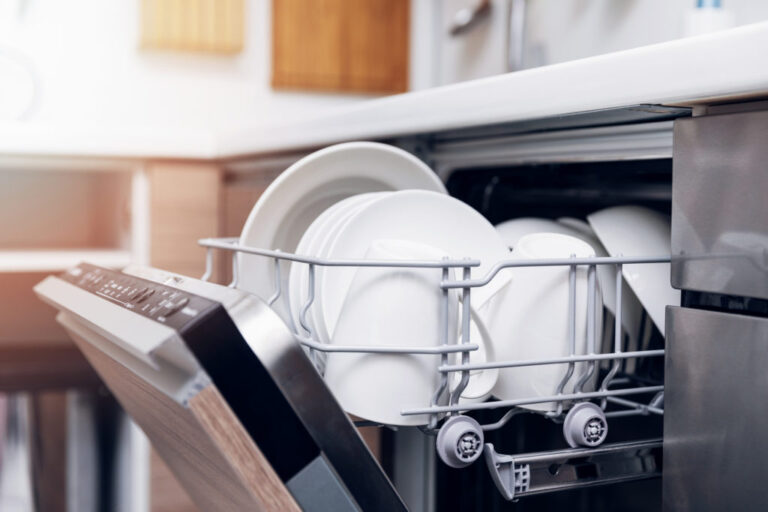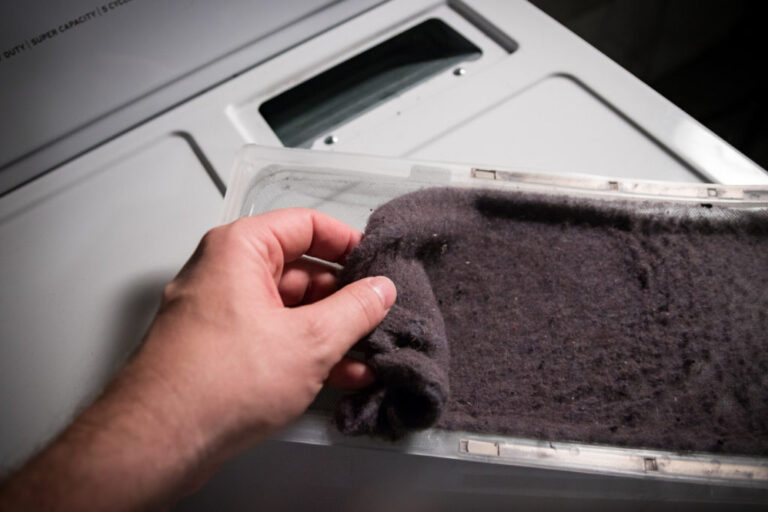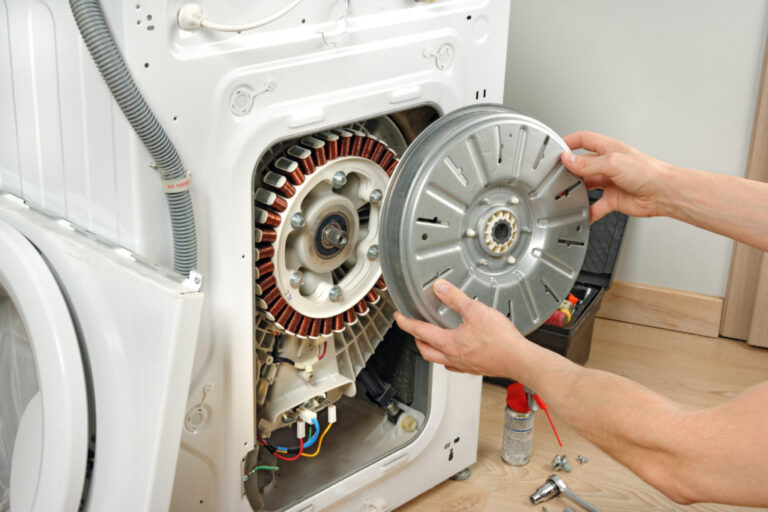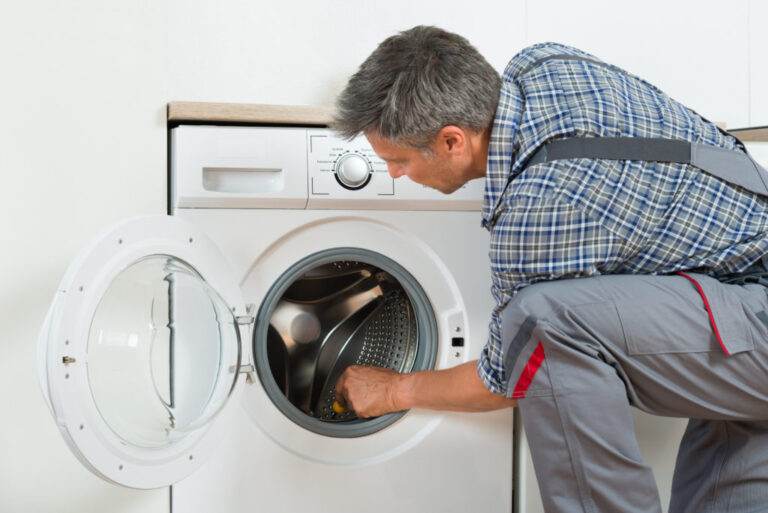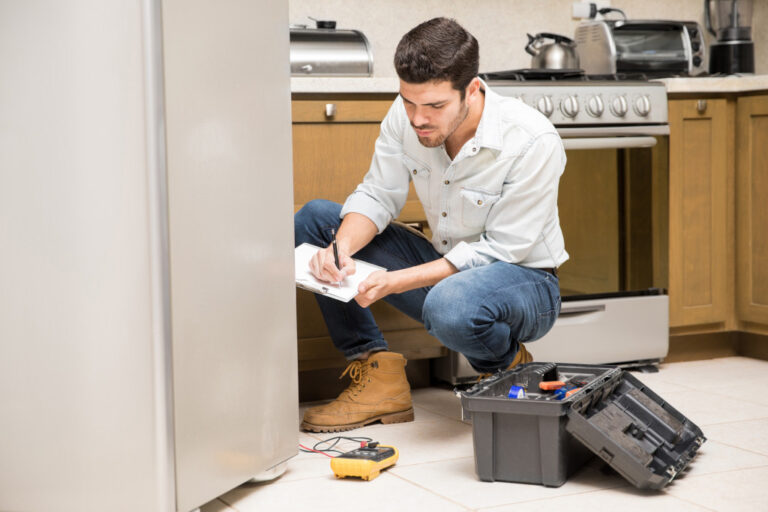When to Repair vs Replace Your Dishwasher
You probably consider your home’s dishwasher an appliance that is absolutely necessary to preserve your sanity (and to deliver dishes you can be certain are sanitary). You probably also fail to fully appreciate how much you rely on this hardworking kitchen appliance … until it stops working. When the inevitable happens (if you use your dishwasher regularly for several years, there will come a day when it stops working), the dishes will pile up, and your hands will get red and sore from scrubbing and drying. Then you will have a decision to make: Should you repair your dishwasher or buy a new one? The smartest option for your unique scenario will depend on how you answer the following questions.
1: Is your dishwasher currently covered by a warranty?
If you’re lucky, your dishwasher will stop working before its warranty runs out. If that’s the case – and your top priority is to pursue the most economical solution – it makes sense to have your unit repaired. You will probably have to jump through some hoops to satisfy the terms of the warranty (usually this entails finding your warranty paperwork, calling or searching online for a list of factory-authorized repair providers, securing an appointment with an authorized provider, and arranging to be home to allow the repairman access to your kitchen to complete repairs). However, this option should cost you little to nothing out of pocket. If your dishwasher is covered by a warranty, but you have upgraded your kitchen and would prefer a different-colored machine, or if you aren’t happy with how it cleans your dishes, you might prefer to consider this an ideal time for an upgrade.
2: How long have you had your dishwasher?
If your machine is approaching the 10-year-old mark, your best bet may be to replace it. Most appliances have a lifespan topping out at 10 years. So, even if you can manage to repair it, odds are high that it will break again sooner rather than later, meaning that fixing it will just prolong the inevitable. Sometimes, it’s simply not possible to repair an old machine if you’re not able to locate replacement parts for it. If you must replace your dishwasher because of its age, look on the bright side: If you replace it with a new model you’ll almost certainly save money on water and electricity.

3: What’s the price difference between repairing it and replacing it?
Even if you learn that it’s possible to replace your older-model dishwasher, it might not make sense from a financial standpoint. As a general rule of thumb, if the cost to repair any appliance is 50 percent or more of the cost to buy a new appliance, it makes sense to replace. For example, if the repair cost estimate for your dishwasher is $180, but you can buy a brand new model for $350, it makes sense to buy a new one that should last much longer and be more energy- and water-efficient.
4: What exactly is wrong with your existing dishwasher?
In the grand scheme of things, household dishwashers are not as exorbitantly expensive as some household machines such as your HVAC unit, double oven, or refrigerator. If you have some amount of disposable income, you should consider how serious the malfunction is to decide whether it makes sense to attempt a repair. Some dishwasher repairs are relatively inexpensive and straightforward when performed by a reputable technician. These include replacing a melted door seal, or repairing a drain pump or fill valve. Other fixes require a considerable expenditure in terms of replacement-part costs and labor. These include replacing the motor or repairing a malfunctioning circulation pump. Unless you are particularly enamored of your dishwasher, for sentimental reasons perhaps, it just doesn’t make sense to spend the time and the money when you can upgrade to a model that will be more efficient.
5: Have you had to repair it in the past?
If you’ve already had your dishwasher repaired and it continues giving you trouble, you may simply have a lemon. The more times you’ve had to repair your machine, the more it makes sense to replace it and start with a brand-new warrantied unit. Repairing an appliance isn’t simply about the money … it’s about the time, inconvenience, and dread that the next breakdown could be just around the corner – and occur at the most inconvenient time. In our throwaway economy, it’s refreshing to learn of people taking the time and effort to repair rather than replace things that become damaged. However, that’s not always possible and it doesn’t always make the most sense. Deciding whether to repair or replace any appliance requires a bit of research and an abundance of common sense! ☎ (512) 337-3246
Call America’s
Appliance rEPAIR Today!
No matter the appliance or brand, we provide prompt and reliable repair services across Central Texas
including: Austin, Round Rock, Killeen, Cedar Park, Leander, Liberty Hill, Copperas Cove,
Florence, Georgetown, Temple, and surrounding areas.

